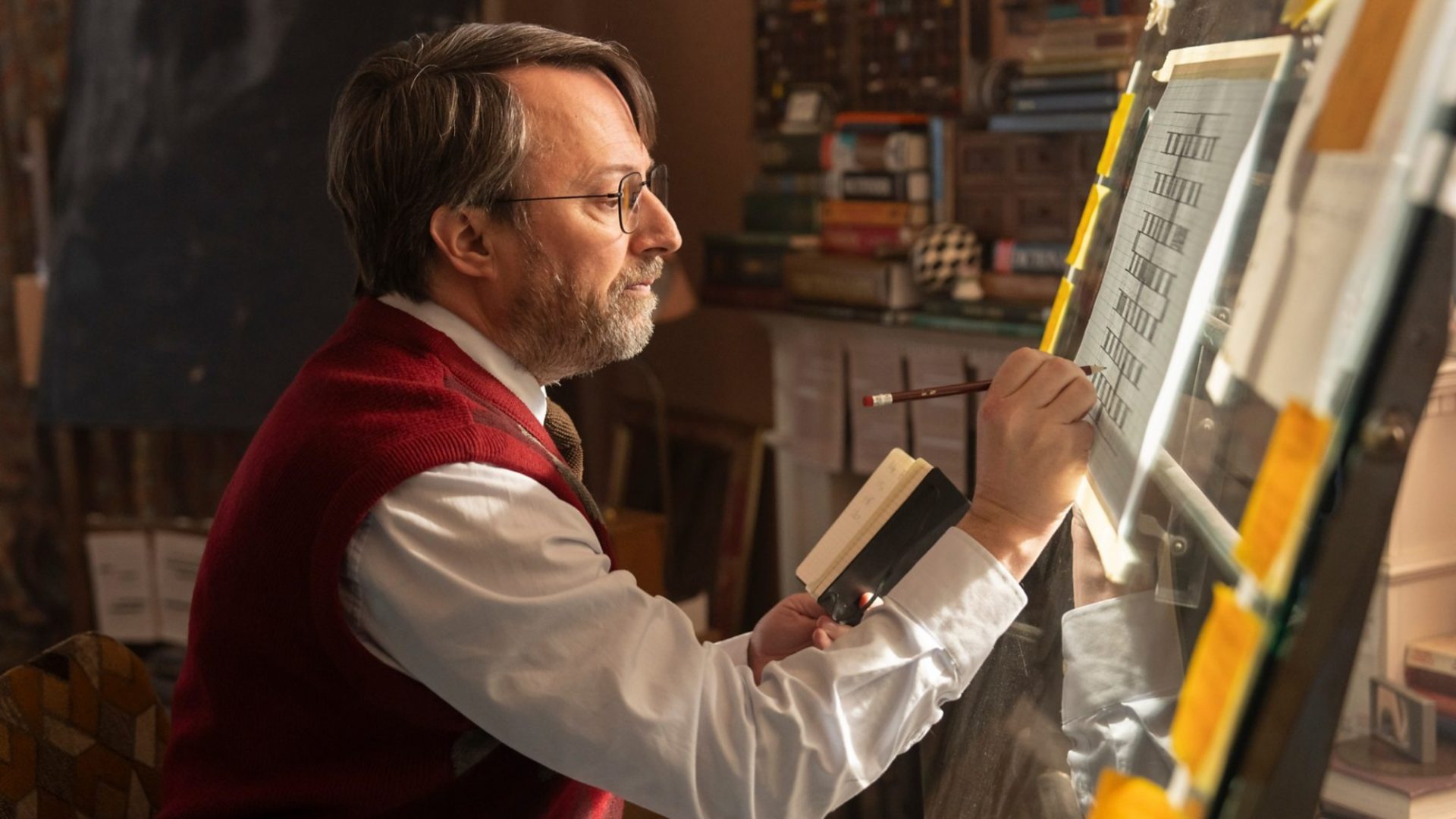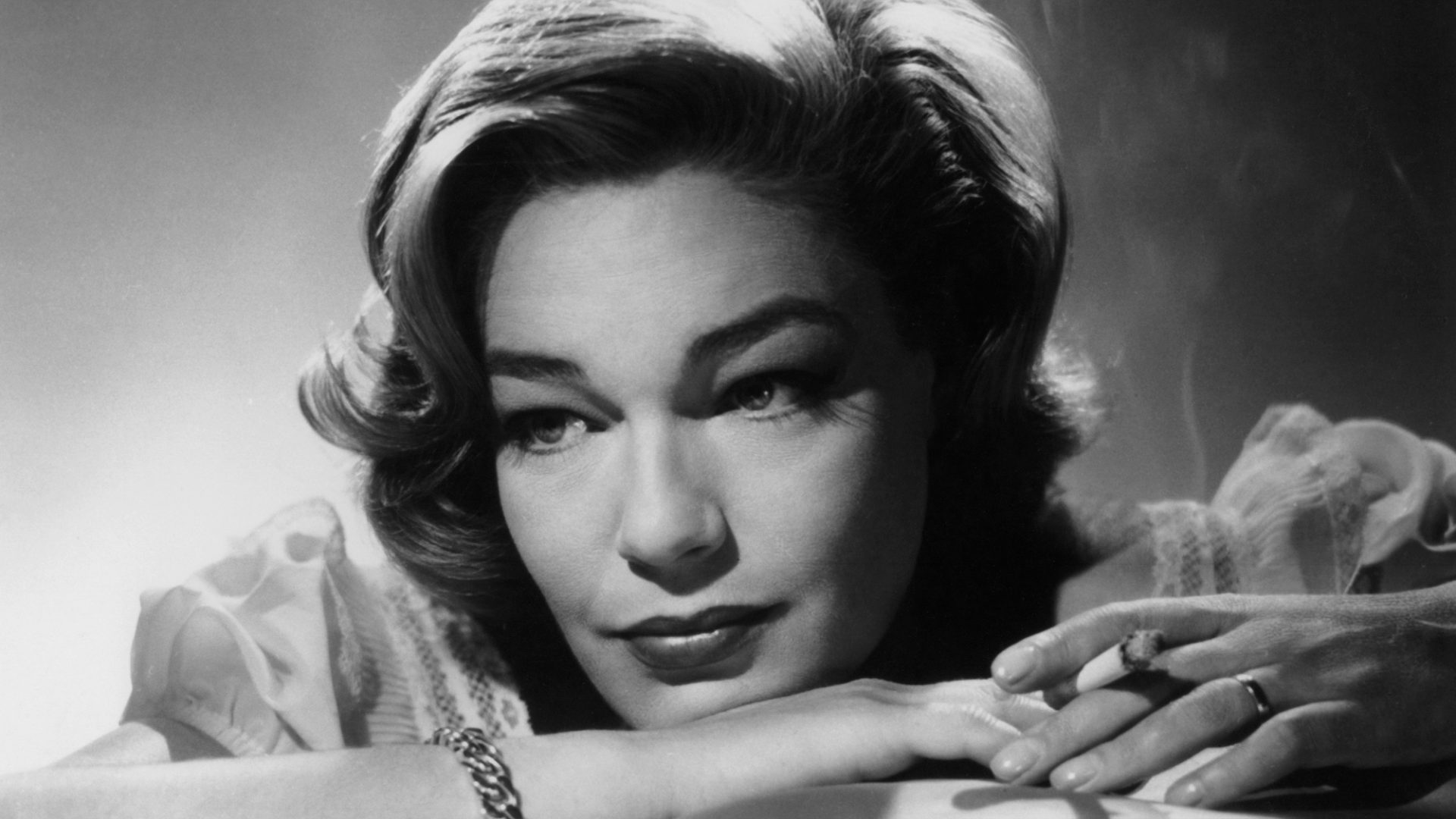PICK OF THE WEEK
LUDWIG
BBC One and iPlayer
When DCI James Taylor (David Mitchell) goes missing, his distraught wife Lucy (Anna Maxwell Martin) seeks help from his identical twin brother, John (also Mitchell). John is an acclaimed puzzle-setter, AKA “Ludwig”, but also a Luddite and near-recluse (“This – all this crowds and noise and buildings and offices and people!”).
So Lucy’s plan – that John should pretend to be James, and see what he can find out from his police colleagues at the station – is his idea of hell. But, leaning on their years of friendship, she persuades him to step up to the fraternal plate; and, to his amazement, John finds that his deductive, clue-chasing brilliance enables him to solve murders with almost embarrassing ease. What started as a terrifying burden becomes unexpectedly fulfilling.
Written by Mark Brotherhood, Ludwig is a love letter to English detective fiction, and revels in its most beloved tropes. From Agatha Christie, there are Poirot-esque moments where John (pretending to be James) explains to a group which of them committed the murder in question; from Arthur Conan Doyle, there is the notion of the genius siblings (Sherlock and Mycroft Holmes); and instead of Inspector Morse’s Oxford, the backdrop is Cambridge.
Mitchell’s dry delivery is pitch-perfect – “Have you heard my small talk?” – and keeps the series well clear of tweeness. There are entertaining cameos by Felicity Kendal, Allan Mustafa, Karl Pilkington and Derek Jacobi, and a neat plot structure that ensures that each of the six episodes works in its own right but also advances a gripping narrative arc. The first, one hopes, of many seasons.
CINEMA
THE SUBSTANCE
General release
Though definitely not for the faint-hearted, Coralie Fargeat’s pedal-to-the-metal assault upon the misogyny of the entertainment business and of contemporary culture in general is a compelling achievement.
Hollywood star-turned-fitness-guru, Elisabeth Sparkle (Demi Moore, superb), is told by her revolting network boss Harvey (Dennis Quaid), as he stuffs his mouth with shrimp, that, at the age of 50, “it stops” for women. Devastated, Elisabeth crashes her car – and is tipped off by a nurse (Robin Greer) that there is a secret means of saving her career.
This is “the substance”, a mysterious green liquid, that sends the body into violent convulsions, resulting in the birth of a younger self. In Elisabeth’s case, this is Sue (Margaret Qualley, also excellent) who is quickly hired by Harvey to replace the woman he has just fired.
The catch is that, in a weird symbiosis, the two selves must alternate weeks: Elisabeth reawakens for seven days while Sue lies comatose in the bathroom. “There is only one you,” warn the instructions. Naturally, this arrangement quickly breaks down and the body horror becomes ever more extreme.
The Substance grafts the gruesome aesthetic of David Cronenberg and the Alien movies on to the morality of The Picture of Dorian Gray. Benjamin Kracun’s cinematography also owes a clear debt to Kubrick’s The Shining.
Nestling in all this weird hyper-reality and Rabelaisian grotesquerie is a sharp warning about the pressure upon women to conform at any cost to a stereotype of ageless perfection. The anatomically violent treatment to which Elisabeth subjects herself is merely a logical progression from Ozempic, body sculpting, extreme exercise and starvation masquerading as dieting – all of which have been normalised in the age of Instagram and TikTok. With brutal success, Fargeat insists that we confront this cultural sickness and the price it exacts.
BOOK
THE SIEGE: THE REMARKABLE STORY OF THE GREATEST SAS HOSTAGE DRAMA by Ben Macintyre
Penguin Viking
“The embassy siege changed the way the world saw the SAS, Margaret Thatcher and terrorism. It also altered the way Britain perceived itself.” So writes bestselling historian Ben Macintyre of the six-day hostage crisis at the Iranian embassy in South Kensington, between April 30 and May 5, 1980, and Operation Nimrod, the spectacular rescue mission enacted by the special forces regiment.
He is absolutely right about the cultural significance of the televised liberation of all but one of the surviving hostages: it became, so to speak, the ur-text of British swagger during the 1980s. But one of Macintyre’s many accomplishments as a writer is his genius for detecting subtlety, nuance and equivocation lurking within the folds of myth.
In Colditz: Prisoners of the Castle (2022), he showed that daily life at the Saxon fortress was altogether more complex than legend suggests; while, in A Spy Among Friends: Kim Philby and the Great Betrayal (2014), he explored the complex role played by friendship, class and personality in the KGB mole’s defection in 1963.
In this magnificent page-turner, Macintyre combines the pace of a thriller with meticulous research to explore the objectives and conduct of the six gunmen from the “Group of the Martyr”, Arab Iranians seeking to liberate the province of Khuzestan from the Ayatollah Khomeini’s grip; the hostages; the negotiators; and the SAS officers and troops involved in the rescue. As ever, his sources are remarkable: notably Major Hector Gullan, who planned the rescue and finally breaks his silence more than four decades later.
The chapter on that mission, “Eleven Minutes”, is breathtakingly suspenseful. It was watched, with live commentary by Kate Adie, by 14 million Britons, many of whom had been enjoying the Embassy world snooker final between Alex Higgins and Cliff Thorburn (in an epic moment of British bathos, commentator Ted Lowe told viewers: “And now… from one Embassy to another”).
Overnight, the SAS became world-famous. Yet, as Macintyre observes, not all of the regiment’s officers “were pleased by the notoriety” or the dazzle of limelight, which persists to this day.
Every legend takes its toll, and every myth has its delusions. An absolute must-read.
CINEMA
THE GOLDMAN CASE
Selected cinemas
In Amiens in 1976, the French activist-turned-criminal, Pierre Goldman (a spectacular performance by Arieh Worthalter), appealed against his conviction for the murder of two pharmacists.
As the author of Dim Memories of a Polish Jew Born in France and a former guerrilla in Venezuela, he was already a hero to many on the French left, including Simone Signoret and Jean-Paul Sartre. Cédric Kahn’s fine film captures the claustrophobia, intensity and sheer theatricality of his bid to prove he is not a killer.
This involves moments of serious tension with his own attorney, Georges Kiejman (Arthur Harari), as the proceedings oscillate between scrutiny of evidence and debates about entrenched antisemitism. Is this a robbery gone horribly wrong or a modern-day Dreyfus affair?
Though the action rarely strays outside the courtroom, the bedlam within makes The Goldman Case a gripping cinematic experience. Throughout, the defendant exudes contempt for his accusers, for the justice system and for the activists of les événements of May 1968 (who venerate him). What he truly represents is the enigma at the heart of the movie.




